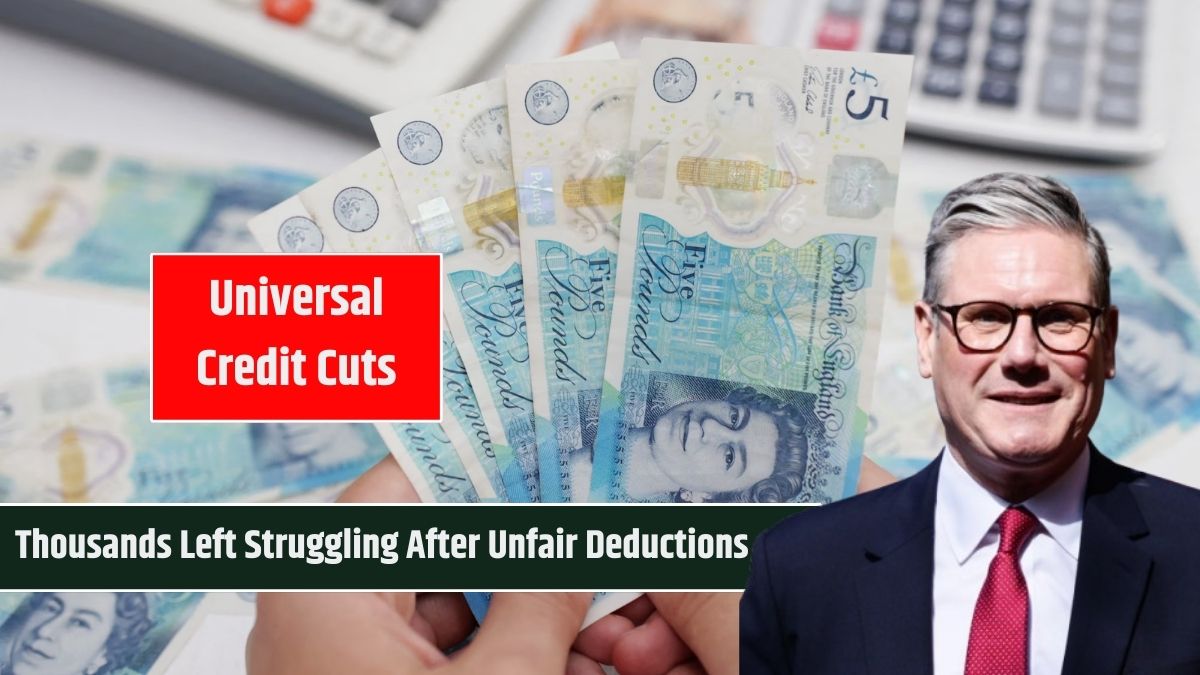A recent High Court ruling has declared the Department for Work and Pensions’ (DWP) practice of making non-consensual deductions from Universal Credit (UC) payments unlawful, impacting tens of thousands of vulnerable people across the UK. Since 2017, the DWP allowed social landlords to deduct money directly from tenants’ benefits to cover rent arrears without their consent, a move intended to prevent evictions but now criticized for leaving claimants shortchanged.
Court records show that since April 2018, this policy led to over 10.3 million deductions totaling nearly £480 million. The court branded the process “procedurally unfair,” spotlighting cases like Nathan Roberts, who lost £500 to a landlord’s disputed claim with no chance to contest it.
The decision has forced the government into a scramble to address the fallout, with Emma Varley of Bindmans LLP stressing to The i Paper that the DWP must now consult UC recipients before any deductions—a major shift in policy.
While the ruling marks a win for claimants, questions linger about compensation for those already affected, as the DWP has yet to comment officially. The verdict has sparked wider frustration, with many wondering if justice will truly be served. It also fuels an ongoing debate over welfare policies, intensified by political divides. A government insider remarked, “This mess started under the Conservatives and was ignored. Labour’s determined to fix it.”
Yet Labour faces its own challenges, with welfare budget cuts of £5 billion on the horizon. Insiders suggest DWP Secretary Liz Kendall wants to redirect these funds into employment programs, though critics argue this could further burden the most disadvantaged.
Charities like Crisis and Shelter have slammed the deductions as “cruel,” with Francesca Albanese of Crisis noting, “Changing benefits without warning causes real hardship—people shouldn’t be punished for struggling.” Polly Neate of Shelter added, “UC renters face massive gaps between benefits and rent, forcing tough choices like skipping meals. Housing benefits need an urgent thaw, and we need more social housing.”
Meanwhile, the DWP is doubling down on welfare oversight, unveiling what it calls “the biggest fraud crackdown in a generation” to recover £1.5 billion over five years. This includes requiring banks to share limited financial data on claimants with over £16,000 in savings, a move privacy advocates like Jasleen Chaggar of Big Brother Watch call “an unprecedented intrusion” into personal finances.
On the housing front, Labour’s Renters’ Rights Bill aims to bolster protections for private tenants. Proposals include raising the eviction threshold from two to three months of arrears, extending notice periods from two to four weeks, and banning discrimination against benefit recipients. As legal battles and policy shifts unfold, the government walks a tightrope between supporting claimants and tightening the welfare system.
FAQ’s
What did the High Court rule about Universal Credit deductions?
The High Court ruled that the Department for Work and Pensions’ (DWP) practice of allowing non-consensual deductions from Universal Credit (UC) payments is unlawful. Since 2017, social landlords could deduct money from tenants’ benefits for rent arrears without their consent, but the court deemed this ‘procedurally unfair,’ affecting tens of thousands of vulnerable claimants.
How widespread was the deduction practice?
Since April 2018, over 10.3 million deductions totaling nearly £480 million were made from UC payments. Claimants like Nathan Roberts lost significant amounts—£500 in his case—to disputed claims, often without any chance to challenge the deductions.
What changes must the DWP make now?
The DWP must now consult UC recipients before making any deductions, a shift from the previous system where landlords could act unilaterally. This follows a legal challenge, with experts like Emma Varley from Bindmans LLP emphasizing the need for claimant involvement.
Will those affected get compensation?
It’s unclear yet. The DWP hasn’t made an official statement on compensating those already impacted by the unlawful deductions, leaving many wondering if they’ll see financial redress.
How are charities and critics responding?
Charities like Crisis and Shelter have called the deductions ‘cruel.’ Francesca Albanese of Crisis highlighted the hardship caused by unannounced changes, while Polly Neate of Shelter urged unfreezing housing benefits and investing in social housing to ease renters’ burdens.
What else is the government doing about welfare?
The DWP is launching a major fraud crackdown to recover £1.5 billion over five years, including requiring banks to share data on claimants with over £16,000 in savings. Labour’s Renters’ Rights Bill also proposes protections like raising eviction thresholds and banning discrimination against benefit recipients.
